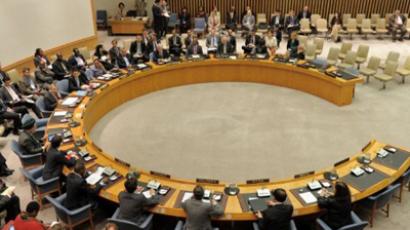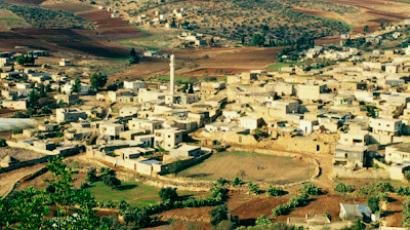US betrayal of Palestine puts damper on Arab Spring
While the Arab Spring has brought winds of positive change, the destiny of the whole region now hangs on the issue of Palestine, insists politician Mustafa Barghouti, a Palestinian MP and the president of the Palestinian National Initiative.
Currently, the Palestinian bid for statehood is deadlocked with the US obstructing a UN Security Council vote on the issue. America’s pressure appears to be bearing fruit – on the other hand, European governments cannot be seen to be going against their own people, whose sympathies lie with Palestine.Even if a Security Council vote goes ahead, the Palestinian bid is certain not to get the necessary two-thirds it needs to pass, because of “the US being capable of pressuring countries, Israel being able to pressure world leaders, and because of the hypocrisy of Western politics,” Barghouti says.“They speak about the freedom of the Syrian people and respect for human rights in Libya, but they fail to recognize that this is also needed for Palestine,” says the Palestinian politician.Mustafa Barghouti believes the Israelis are very concerned that if Palestine becomes an equal partner on the international stage, it will assume the right to appeal to the International Criminal Court and “that is probably the main reason why they [Israelis] are trying to obstruct our membership in the UN. Why? Because they know they’ve committed war crimes and many of their army officers have committed crimes against humanity.”High hopes of US support for Palestine’s bid for statehood were replaced with a stab in the back when Barack Obama strongly denounced the bid, despite past insistence that Palestine should become a UN member by November 2011.“We see it as a great failure of an American president who failed to respect his own words,” Barghouti says. “And now he is leading a war against our membership.”Barghouti deplores the fact that the actions of the US administration and Congress are in total contradiction of the principles they lecture the rest of the world about – respect for human rights, including the right to self-determination, and the principles of freedom. Attitudes to Palestine are a litmus test for every country’s commitment to democratic values, Mustafa Barghouti says, and the price to be paid for Barack Obama breaking his word has been the US losing its position as a mediator in the Middle East peace process. Mustafa Barghouti says he regrets the expenditure of the member countries of the Middle East Quartet on the peace process, because that money is spent in vain.On the other hand, Palestine needs national unity and the reconciliation of the Fatah and Hamas movements. Members of both organizations are ready but “what they need to see is courage of their leaders taking action that would put the Palestinian national interest above their factional and partisan interests.”Mustafa Barghouti argues that the political sympathies of the Israeli population have shifted to the right because the Israeli public is benefiting from the occupation and a de facto apartheid system.“Israel is killing the last opportunity for a two-state solution,” he says, “which means they will have to deal with the only remaining solution which is a one-state solution.”That, Barghouti explains, would mean Israel ceasing to be a Jewish state and becoming a country in which Jews no longer even constitute the majority.Tough times are pushing both the American and Israeli leaderships to seek a military conflict, possibly with Iran. Tel-Aviv is definitely looking for such an opportunity, preferably with America spearheading hostilities, and Israel joining the war later.“They [Israel] want to become a super regional power,” argues Barghouti, “I do not think they will succeed.”The politician believes that US policy has deprived it of key allies in the Middle East – Iran, Egypt and Turkey – and this will change the whole situation in the region. Palestine remains the last obstacle to positive change in the Middle East, but as the populations of countries touched by the Arab Spring support the Palestinian cause, “the future of the stability and peace of this region, economic development and co-operation, is directly related to solving the Palestinian issue.”














